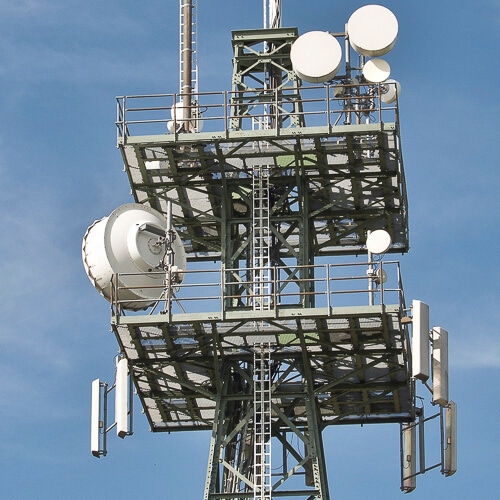
Liberty Global CEO Mike Fries indicated back in March 2021 that he would be open to a possible sale of tower infrastructure by the group’s Dutch joint venture VodafoneZiggo and Belgium-based subsidiary Telenet.
VodafoneZiggo, owned jointly by Liberty Global and Vodafone, and Telenet each have around 3,000 towers in their respective markets. Telenet gained its tower assets when it acquired Belgian mobile operator Base in 2016.
Speaking during Deutsche Bank’s Media, Internet & Telecom Conference, Fries suggested that the combined assets had a value of €1.5 billion to €2 billion (US$1.7 billion to $2.3 billion).
Figure 1:  Towering inferno: Given the rate at which operators seem to be shifting their tower real estate, is there something we should know?
Towering inferno: Given the rate at which operators seem to be shifting their tower real estate, is there something we should know?
(Source: Pixabay)
"How will we monetize it? When will we monetize it? When does it make sense for the opcos? That’s all work-in-progress," he said, according to a transcript of the event.
Fast forward to the present day, and reports are now suggesting that Liberty Global is actively exploring a sale of the 3,000 towers in Belgium.
According to Bloomberg, sources say that Telenet is working with Goldman Sachs Group on the potential divestment. The price has been pegged at around €600 million ($694 million).
No hype here
Belgian newspaper De Tijd picked up the story and appears to have gained confirmation of the report from its own sources.
However, it points to an April valuation by investment bank Berenberg that Telenet's mobile tower portfolio is worth about €525 million ($607 million). Private equity funds as well as infrastructure players are seen as potential buyers.
De Tijd also noted that while operators around Europe have been selling off towers or putting them into separate companies, Belgium has remained more or less shielded from this 'mast hype' until now.
It attributes this to a specific situation for the nation: the three operators (Proximus, Orange Belgium and Telenet) are obliged by the government to share their sites, making it more complex to sell the infrastructure.
Want to know more about 5G? Check out our dedicated 5G content channel here on
Light Reading.
For now, Telenet appears to be keeping its cards close to its chest, telling De Tijd: "We continue to view it as a strategic option that can be part of larger strategic transactions."
Also worth noting is that Telenet began talks in June last year with network company Fluvius about the "realisation of a data network of the future in Flanders."
The aim of the talks was to see if they could come to an agreement to roll out fiber-to-the-home (FTTH) technology, which Telenet could use to augment its existing hybrid fiber coax (HFC) network. Telenet is also one of the candidates for the takeover of the Walloon operator VOO.
For its part, Liberty Global has been gradually shedding cable assets in Europe in recent years in order to focus on more profitable operations with healthier pay-TV and broadband markets, including Telenet and VodafoneZiggo.
It also owns 50% of Virgin Media O2 in the UK; Virgin Media in Ireland; Sunrise UPC in Switzerland; and UPC in Slovakia.
Related posts:
— Anne Morris, contributing editor, special to Light Reading
Read more about:
EuropeAbout the Author(s)
You May Also Like




.jpg?width=300&auto=webp&quality=80&disable=upscale)







